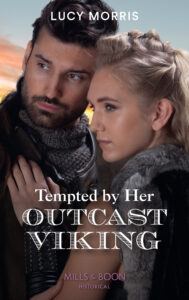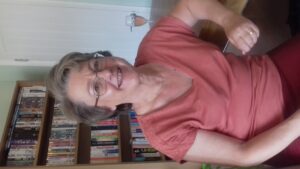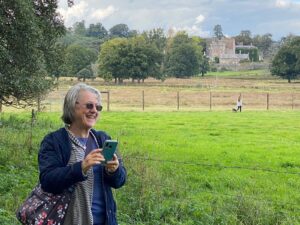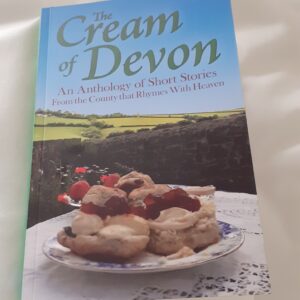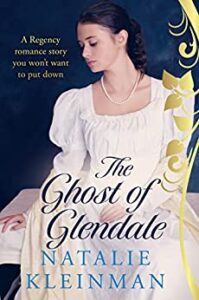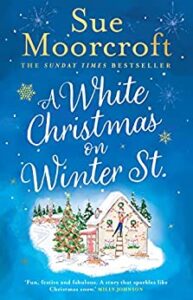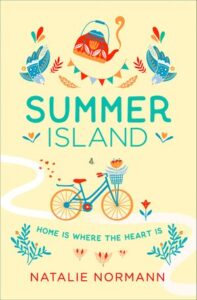 I think visitors to the north of England, and especially to the industrial urbanised towns of West Yorkshire, are always surprised to find themselves in the Yorkshire Dales – Skipton, Kettlewell and Grassington – and then, within another fifty miles or so, into the glorious Lake District. Wordsworth certainly knew what he was talking about when he called Grasmere, ‘The loveliest spot that man hath ever found’ and, writing in praise of Lake Ullswater, found it to be, ‘The happiest combination of beauty and grandeur.’
I think visitors to the north of England, and especially to the industrial urbanised towns of West Yorkshire, are always surprised to find themselves in the Yorkshire Dales – Skipton, Kettlewell and Grassington – and then, within another fifty miles or so, into the glorious Lake District. Wordsworth certainly knew what he was talking about when he called Grasmere, ‘The loveliest spot that man hath ever found’ and, writing in praise of Lake Ullswater, found it to be, ‘The happiest combination of beauty and grandeur.’
I have just completed my sequel to The Village Vicar (available January 2023) and, in this sequel, (probably to be titled The Girls of Heatherly Hall and available Summer 2023) I had a glorious time writing about Eva, one of the Quinn triplets, spending a weekend at an art retreat on Lake Ullswater.
To put the scene into context, Eva, newly separated from her husband, and utterly miserable, is in the Lake District for the weekend on an art course at one of the UK’s upmarket retreats, but also there on a fact-finding mission, prior to setting up her own similar art retreat back in West Yorkshire.
Eva arrives in the pouring rain for which the Lake District is renowned and, after a sleepless night, walks in the early hours of a now fine midsummer morning, down through the grounds of the retreat to the edge of Lake Ullswater itself. She is instantly captivated by the beauty and peace of the place:
 …twelve acres of gardens and woodlands, as well as over half a mile of shore around the lake, and she set off down the beautifully kept gardens to the lake side. The stunning mountain scenery to the south softened gradually to the gently undulating hills of the north and, as she walked, breathing in the early morning scents of Oriental Poppies, Astrantia and a mass of red and yellow roses she recognised but couldn’t identify, she began to feel calmer.
…twelve acres of gardens and woodlands, as well as over half a mile of shore around the lake, and she set off down the beautifully kept gardens to the lake side. The stunning mountain scenery to the south softened gradually to the gently undulating hills of the north and, as she walked, breathing in the early morning scents of Oriental Poppies, Astrantia and a mass of red and yellow roses she recognised but couldn’t identify, she began to feel calmer.
Eva spends the weekend learning to throw pots with the charismatic Russian, Andrea Zaitsev and, when he suggests an evening bike ride around Ullswater, she willingly concurs.
…the bike set off through the stable yard and down towards the large open wooden gate, before turning right onto the country road and accelerating at speed. Eva felt her heart and pulse escalate in unison with the bike as the Harley Davidson roared along, the warm summer evening breeze in her face and the rumble of the V-twin engine beneath her.
Andrea powered the bike through the village of Pooley Bridge before taking the main road which clung to, and followed, the margin of Ullswater lake to their left. Once on the main road, the bike gathered momentum and Eva realised they were probably well over the speed limit, but she felt totally safe in this man’s hands, surrendering to the glorious experience of flying through the summer evening as dusk began to descend and a large Strawberry moon rose over the lake itself.
 Andrea slowed down completely as he took them through the villages of Watermillock and Glenridding where tents and B and Bs announced their popularity with tourists and then, leaving the A road, continued slowly down country lanes until he pulled up at a quirky-looking pub in the village of Patterdale.
Andrea slowed down completely as he took them through the villages of Watermillock and Glenridding where tents and B and Bs announced their popularity with tourists and then, leaving the A road, continued slowly down country lanes until he pulled up at a quirky-looking pub in the village of Patterdale.
‘Where the dogs come from,’ Eva said as, with slightly shaky legs, she dismounted the bike and waited until Andrea parked correctly in front of the pub.
‘Dogs?’
‘Patterdale terriers. No idea what they look like, but I guess they must have originated from here…’



